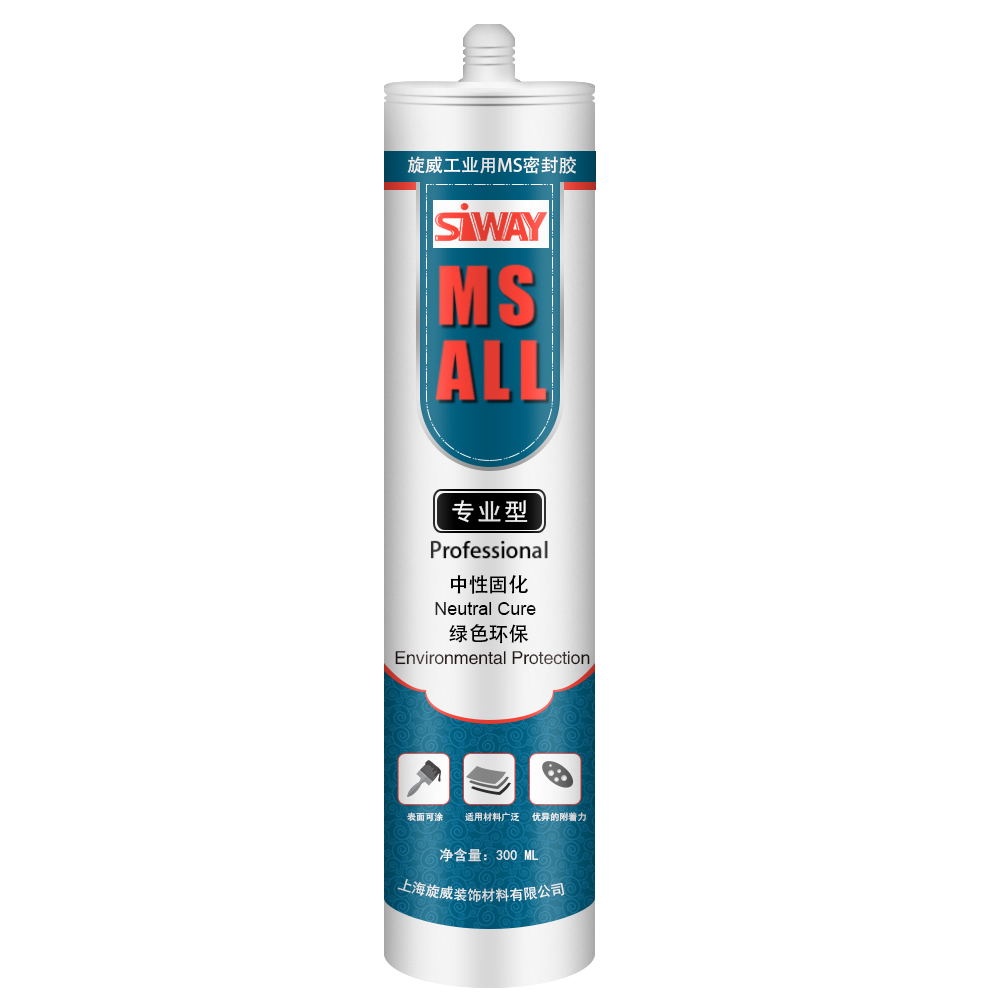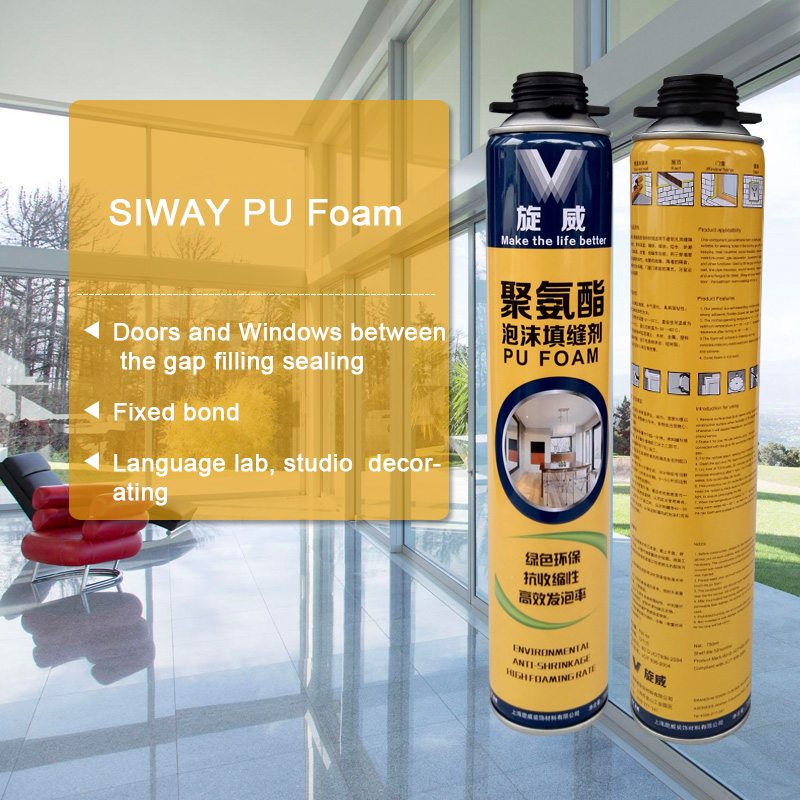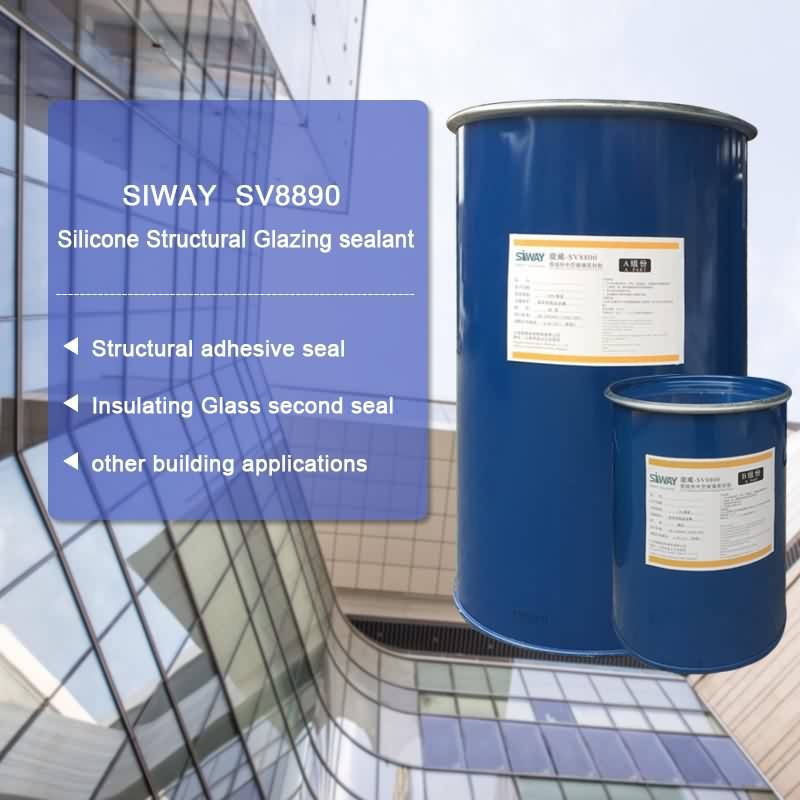Ordinary Discount SV-900 Industrial MS polymer silicone sealant for Amsterdam Importers
Short Description:
Description It is one component, primer less, can be painted, high quality joint sealant based on MS polymer technology, ideal for all sealing and boding on all materials. It is solvent free, environmental protection product. Where to use Sealing and bonding in housing area, bus, train, elevator, air conditioner, ventilation equipment. Used for installing fixed panel frame, windowsill threshold, and suitable for sealing on all materials surface, like painted metal, glass, wood, concret...
As a result of ours specialty and service consciousness, our company has won a good reputation among customers all over the world for Ordinary Discount SV-900 Industrial MS polymer silicone sealant for Amsterdam Importers, Our aim is to help customers realize their goals. We are making great efforts to achieve this win-win situation and sincerely welcome you to join us
Description
It is one component, primer less, can be painted, high quality joint sealant based on MS polymer technology, ideal for all sealing and boding on all materials. It is solvent free, environmental protection product.
Where to use
Sealing and bonding in housing area, bus, train, elevator, air conditioner, ventilation equipment. Used for installing fixed panel frame, windowsill threshold, and suitable for sealing on all materials surface, like painted metal, glass, wood, concrete, marble, natural stone, granite, bricks, mirrors, aluminum, steel, lead, zinc, common plastics, polystyrene, polyurethane and so on. Sealing the joint of ceiling, timber, gaps of water pipe, gutter on roofs, moved rooms, container, marine. Apply for interior and exterior family decoration, like floor adhesive systems, particular for laying floor tiles, suitable for kitchen, bathroom.
Key Features
1. Paint able
2. Sealing most materials
3. Excellent adhesion
Technical data sheet
| Test standard | Test project | Unit | value |
| Before curing——25℃,50%R.H. | |||
| GB13477 | density | g/m³ | 1.40±0.05 |
| GB2793 | Non-volatile components | % | 99.5 |
| GB13477 | Flow, sagging or vertical flow | mm | 0 |
| GB13477 | surface drying time(25℃,50%R.H.) | min | 30 |
| Curing speed | mm/24h | 3 | |
| Sealant curing speed and operating time will have different with different temperatures and temperature, high temperature and high humidity can make sealant curing speed faster, rather low temperature and low humidity are slower.14days after curing——25℃,50%R.H. | |||
| GB13477 | Durometer Hardness | Shore A | 32-38 |
| GB13477 | The ultimate tensile strength | Mpa | 2.5 |
| GB13477 | elongation at break | % | 400 |
Color
White, black, grey
Package
300ml plastic cartridges
Shelf life
12 months
Note
If you want the TDS or MSDS or other details, please contact with our sales person.
This is an install video on how to install the Camco Cyclone RV Sewer Vent Covers. We will be using Dicor self leveling roof sealant as well to seal our new vents. Visit RVhelponline.com for more content like this one.
Camco Cyclone RV Sewer Vent Cover https://amzn.to/2rrxnyj
Ridgid Cordless Drill https://amzn.to/2rCNU6B
Putty Knife https://amzn.to/2sKQkjr
Plastic Pipe Cutter https://amzn.to/2sKmiw5
Disclaimer-The link/links above I may receive advertising fees for if you click the link above.
Check out our blog for clickable links to the items below!
Blog- https://www.heywandererblog.com/2017/06/diy-stock-tank-pool-everything-you-need.html
Instagram- www.instagram.com/heywanderer
E-mail- heywanderer@gmail.com
Things you will need:
- Stock tank (size of your choosing- ours is 8 ft.)
- Above Ground Pool Pump
- Weatherproof Silicone Sealant
- Hole Saw with Arbor
- Plunger Valves
- Pool Outlet
- 1-3 Rubber Washers (or Gaskets)
- 1 Strainer Nut
Other things you will need for maintenance:
- Chlorine Tablets
- Floating Pool Dispenser
- Water Testing Kit
Step 1- Find a nice level area to lay the stock tank on. If the area where you have chosen isn’t level, use sand or rocks to build up whatever side needs it. It is very important that your stock tank be level so there aren’t any unexpected leaks.
Step 2- Cut holes in your stock tank. I’m not going to lie- this is a pain in the butt. We bought a hole saw with an arbor and it took two people to get through the metal. You will need two holes, one at the top and one at the bottom. In an above ground pool, these aren’t usually right on top of each other, but ours are. We haven’t ever seen this as a problem.
Step 3- Start assembling the parts. In the pool pump package there is a packet with instructions, warnings and troubleshooting. This packet proved to be vital in the setup of the pool. I did end up getting 2 gaskets for the bottom section (the drain section), one for the inside of the pool and one for the outside. It only says you need one for the inside, but this was causing a drip for us. I also put thread seal tape around the connections that were closest to the pool. There are a lot of connections, and each one has a gasket, so you could probably get away without the tape. I didn’t put it on all the connections, the only ones that really seemed to matter were the ones that are connecting the hoses to the pool.
Step 4- Apply silicone waterproof sealant around all crevices involving the input and output parts. I did this on the inside of the pool and the outside. And I applied it VERY HEAVILY and did two layers, allowing one to dry before the second was applied. Sealing these crevices is one of the most important parts. This is what is going to keep the water in the pool. Well all of these steps are leading up to keeping water in the pool, but if there is any chance that it’s going to be getting out, this is what will save you.
Step 5- Test for leaks. Before I added water to the pool, I took a water bottle and poured a good amount of water on the input and output parts. You could also just use a water hose. I would make sure the hose wasn’t on full blast. You don’t want to accidentally penetrate the sealant.
Step 6- Once you are sure there aren’t any leaks, fill the pool just above the bottom hole/output. Check again to see if any leaks have started. If there aren’t any, fill the rest of the pool up!
Step 7- Turn the pump on. Make sure both plunger valves are open/unlocked. When you first do this water may not come out of the output, but there is a solution! Twist off the knob on top of the filter pump to let some air out. Some water may escape too and that’s okay, just be ready to screw it back on as soon as the water starts coming out.




